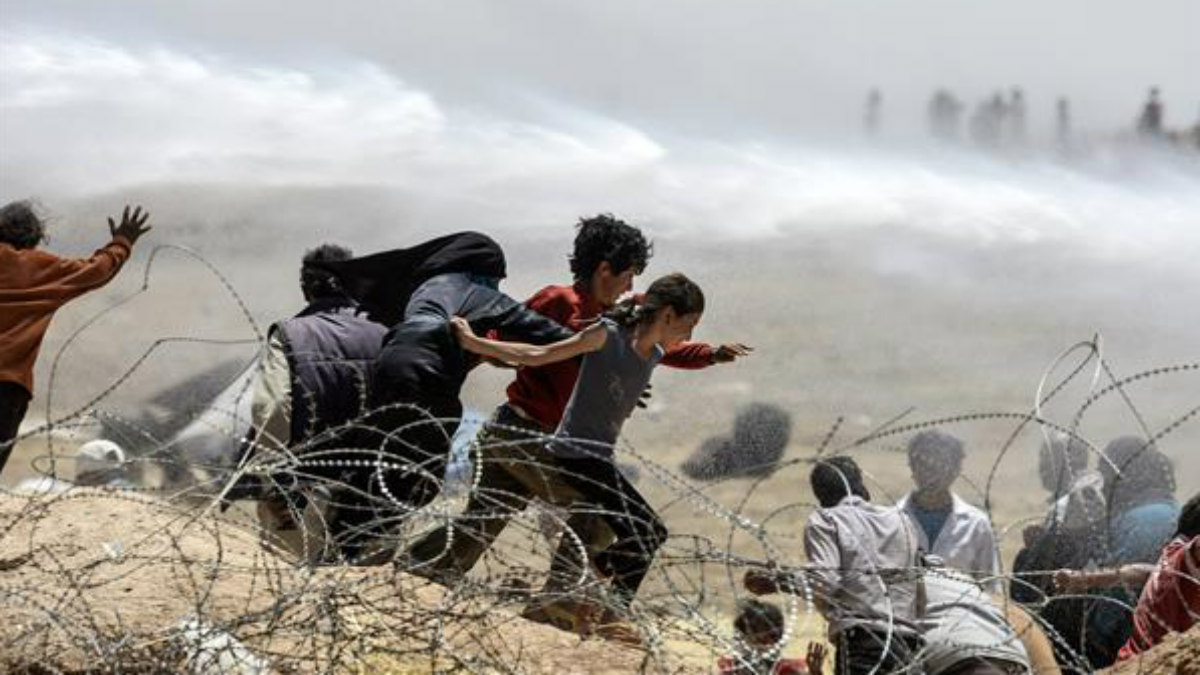UN releases 'disheartening' statistics on World Refugee Day
Population displacement at all-time high as war, violence and family hits communities

A free daily email with the biggest news stories of the day – and the best features from TheWeek.com
You are now subscribed
Your newsletter sign-up was successful
New UN figures to mark World Refugee Day have revealed the toll of violence and warfare on communities around the world.
Last year, 65.6 million people, half of them children, were forced to leave their homes - the equivalent of one person every three seconds, says the UN report.
A third of those, more than 20 million, left their country to become refugees, while the other 40 million remained within their national borders as displaced people. Turkey bore the brunt of the influx, taking in three million refugees in 2016.
The Week
Escape your echo chamber. Get the facts behind the news, plus analysis from multiple perspectives.

Sign up for The Week's Free Newsletters
From our morning news briefing to a weekly Good News Newsletter, get the best of The Week delivered directly to your inbox.
From our morning news briefing to a weekly Good News Newsletter, get the best of The Week delivered directly to your inbox.
Why is displacement at an all-time high?
The number of displaced people around the world has almost doubled since 1997, when 33.9 million people were forced to flee their homes.
Most of the additional influx in recent years is due to the continuing conflict in Syria. This year alone, 5.5 million people fled the war-torn country.
However, the UN Commission for Refugees said sectarian violence and famine in sub-Saharan Africa were also major factors, with South Sudan the third-largest source of refugees after Syria and Afghanistan.
A free daily email with the biggest news stories of the day – and the best features from TheWeek.com
Is the outlook for 2017 any better?
Filippo Grandi, UN High Commissioner for Refugees, told the BBC the statistics spoke of "a disheartening failure of international diplomacy".
He added: "The world seems to have become unable to make peace."
The report "does not predict an optimistic outcome to the crisis", says Newsweek, but Grandi says commissioners hope the bleak figures will encourage governments and organisations to focus on "long-lasting solutions to crises, rather than just emergency responses".
-
 Why is the Trump administration talking about ‘Western civilization’?
Why is the Trump administration talking about ‘Western civilization’?Talking Points Rubio says Europe, US bonded by religion and ancestry
-
 Quentin Deranque: a student’s death energizes the French far right
Quentin Deranque: a student’s death energizes the French far rightIN THE SPOTLIGHT Reactions to the violent killing of an ultra-conservative activist offer a glimpse at the culture wars roiling France ahead of next year’s elections.
-
 Secured vs. unsecured loans: how do they differ and which is better?
Secured vs. unsecured loans: how do they differ and which is better?the explainer They are distinguished by the level of risk and the inclusion of collateral
-
 Epstein files topple law CEO, roil UK government
Epstein files topple law CEO, roil UK governmentSpeed Read Peter Mandelson, Britain’s former ambassador to the US, is caught up in the scandal
-
 Iran and US prepare to meet after skirmishes
Iran and US prepare to meet after skirmishesSpeed Read The incident comes amid heightened tensions in the Middle East
-
 Israel retrieves final hostage’s body from Gaza
Israel retrieves final hostage’s body from GazaSpeed Read The 24-year-old police officer was killed during the initial Hamas attack
-
 China’s Xi targets top general in growing purge
China’s Xi targets top general in growing purgeSpeed Read Zhang Youxia is being investigated over ‘grave violations’ of the law
-
 Panama and Canada are negotiating over a crucial copper mine
Panama and Canada are negotiating over a crucial copper mineIn the Spotlight Panama is set to make a final decision on the mine this summer
-
 Why Greenland’s natural resources are nearly impossible to mine
Why Greenland’s natural resources are nearly impossible to mineThe Explainer The country’s natural landscape makes the task extremely difficult
-
 Iran cuts internet as protests escalate
Iran cuts internet as protests escalateSpeed Reada Government buildings across the country have been set on fire
-
 US nabs ‘shadow’ tanker claimed by Russia
US nabs ‘shadow’ tanker claimed by RussiaSpeed Read The ship was one of two vessels seized by the US military